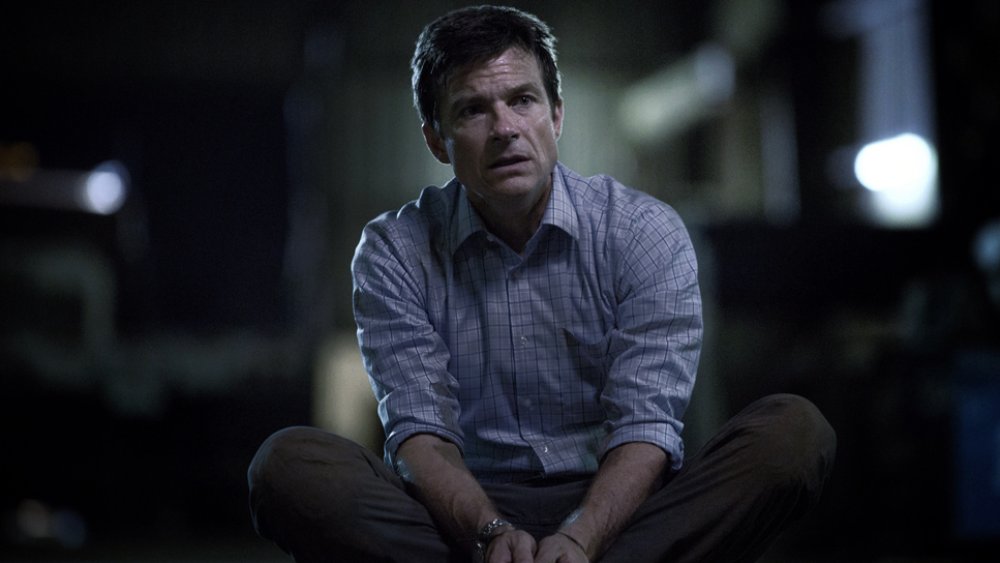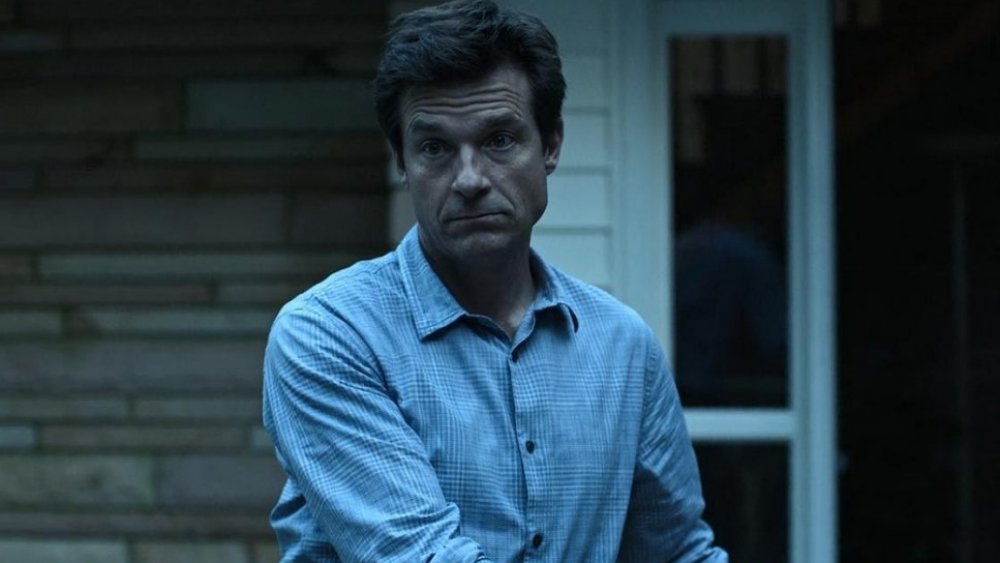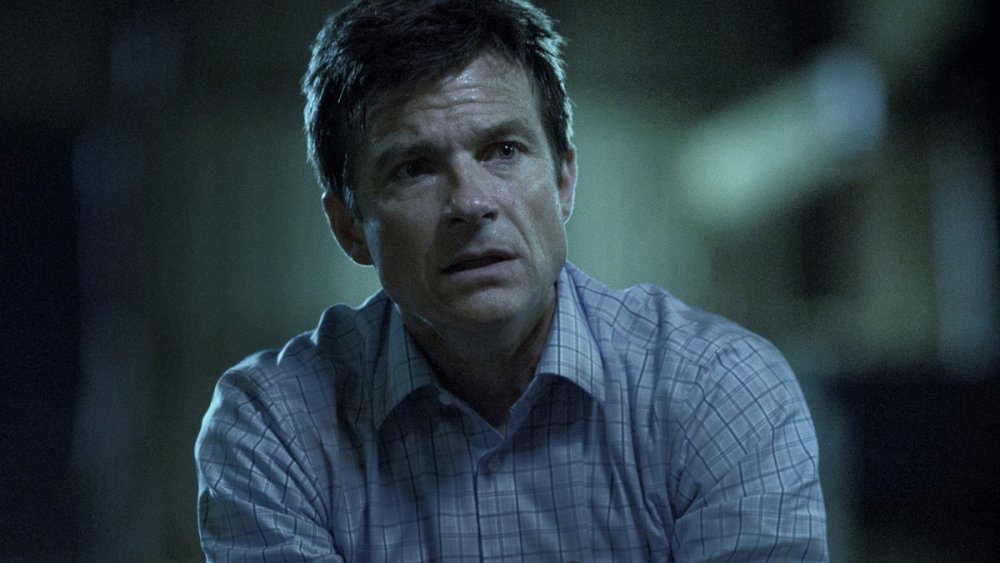The Truth About Marty's Disposable Income On Ozark
Over three award-winning seasons, Netflix's bracing crime drama Ozark has more than delivered its share of pulse-pounding thrills and white-knuckle chills. It's also delivered enough bloody retribution to give The Godfather a run for its money. Obviously, the mild-mannered Marty Byrde (Jason Bateman) is hardly the sort of character one would expect to find at the center of such stark, frequently hyper-violent drama. Therein lies the crux of the show, as Marty and his ambitiously temperate wife Wendy (Laura Linney) continue to share a table with the likes of backwoods heroin czars, Kansas City crime bosses, and cartel kingpins.
Of course, wanting to share in the profits of such nefarious sorts is exactly what drew Marty to the table to begin with. In case you've forgotten, Marty Byrde was knowingly laundering money long before he up and moved the Byrde family to the Lake Ozark area. That move was the result of Marty's cartel bosses discovering his partners had gotten greedy and embezzled millions from their treacherous employers. Marty only survived because he was the one actually moving the money for the cartel bosses, and he surprisingly managed to talk them into letting him continue the work, which he now does essentially with targets on his front and his back.
Things are not all bad, however, for Marty and the Byrdes in their new home. They've moved into a big, lake-front house, and they can splurge on non-essential items like Ray-ban shades and old-school arcade games. Still, Marty has more or less chosen to live modestly while in the Ozarks, even if he clearly has disposable income on hand when he needs it. If you're wondering where Marty's income originates, look no further than his dirty dealings with his cartel clientele.
A small percentage translates to big bucks for Marty Byrde on Ozark
No, Marty Byrde hasn't followed his departed former colleagues into the perilous world of skimming cartel cash. Rather, the man at the center of all the drama on Ozark has simply proven himself to be a master money mover, and therefore an invaluable asset to an operation with as much dirty money as a cartel. He's also proven himself a savvy businessman, negotiating to get paid a small percentage of the big bucks he's moving for his bosses — once he made good on the millions his old partners stole, obviously.
When the debt was settled, the plan was for the Byrdes to "build normal from here" and get themselves out of danger — something Marty himself said on the show. As Vulture detailed in its season 2 premiere recap, the original plan was as follows: "The Byrdes will get their three percent of the profits, the operation will be self-sustaining, and then they can move wherever they want in the world, living happily ever after."
But, as all Ozark fans know, nothing is as simple as that in this world.
Marty Byrde will continue bringing in tons of cash in the future, but trouble will also follow
"Big bucks" doesn't even really come close to describing the sums of money Marty is being asked to launder on Ozark. He is, after all, working for the largest drug operation in Mexico. Plus, after the stunning turn of events that closed out season 3 of Ozark essentially eliminated the Navarro cartel's competition south of the border, business is sure to be booming moving forward. All that really means is that the $500 million Marty Byrde was initially tasked with washing for Omar Navarro (Felix Solis) will probably grow significantly on season 4 of Ozark.
While more money will likely result in more laundering problems for Marty, it will also ensure his own bank accounts are about to get significantly fatter. Even a tiny percentage of $500 million is a lot of money. And we're not just talking about the sort of money that can allow one to live comfortably for a few years — we're talking about the kind of money that'll let you live the life of luxury until the day you die.
Given the stakes of the game Marty Byrde has become a key player in on Ozark, it's far more likely that day will come sooner rather than later.


